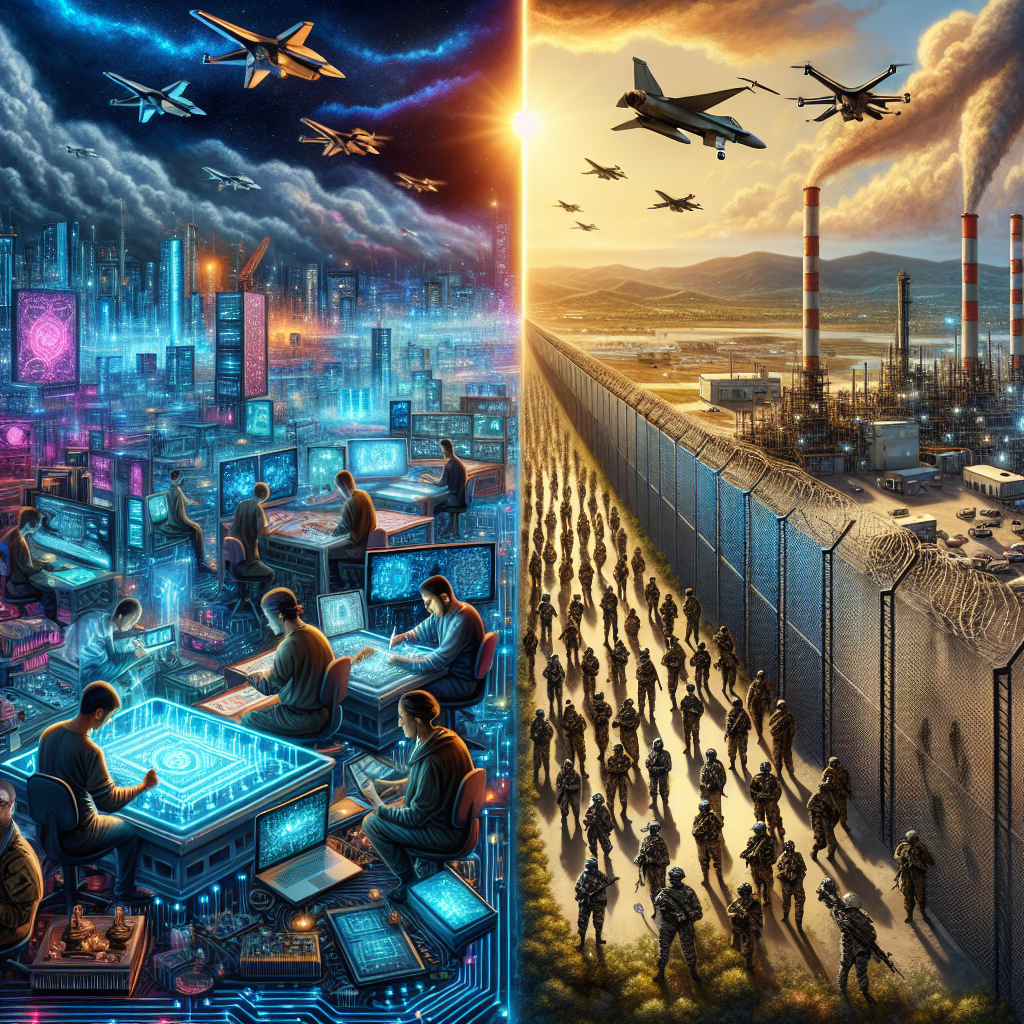Trump Administration Rescinds AI Chip Export Curbs Amid Controversy
Introduction
The progression of artificial intelligence (AI) technology has placed the United States at the forefront of innovation and economic influence. However, this leadership has encountered regulatory hurdles, notably those concerning the export of AI-related technologies. The Trump administration’s decision to rescind AI chip export curbs marked a significant shift in U.S. technological policies, sparking broad debate. These export restrictions were initially designed to limit the international sale of advanced AI semiconductors to uphold national security and maintain a competitive edge. The stakeholders in this landscape range widely, from powerful technology companies to national security analysts, each with significant interests either at risk or advantage.
Background
The initial AI chip export curbs were enacted under a Biden-era policy aimed at safeguarding critical technology. These restrictions were motivated by concerns over national security—primarily the potential for advanced AI chips to be utilized by rival nations for military or espionage purposes. Furthermore, maintaining a competitive technological advantage was a pivotal concern, as AI chips represent crucial components in the burgeoning field of AI, powering everything from machine learning applications to complex neural networks.
The timeline leading to the rescission of these curbs saw intense lobbying from tech giants like Nvidia and AMD, who argued that the restrictions hampered their ability to compete globally and stifled innovation. The contentious policy experienced several revisions and faced scrutiny from industry leaders and policymakers, ultimately leading to the Trump administration’s rescission.
Details of the Rescission
The Trump administration’s decision to lift the AI chip export curbs was framed as a strategic pivot to foster innovation and open global markets. The administration announced that these changes would enable American companies to expand access to advanced AI technologies worldwide, thereby reinforcing the U.S.’s leadership in the tech industry. This policy shift was met with an array of reactions from industry stakeholders. Tech companies and investors largely welcomed the move, viewing it as an opportunity to reclaim market growth and innovation potentials. Conversely, some policymakers and security experts expressed concerns over the potential risks associated with reduced export scrutiny.
Controversy Surrounding the Decision
The decision to rescind the AI chip export curbs ignited a firestorm of controversy. Proponents of the rescission argued that relaxing restrictions would embolden U.S. technological advancement and enable companies to assertively compete on the global stage. They emphasized the economic benefits of tapping into rapidly growing markets, such as those in Asia and the Middle East.
Conversely, opponents warned of severe national security risks, emphasizing that AI technologies could be repurposed for military applications or used in adversarial scenarios. National security experts criticized the decision for potentially undermining U.S. strategic interests, while technology advocates highlighted the importance of ensuring U.S. technology is not used against American interests. Internationally, the decision was met with mixed reactions. Some rival nations viewed it as a competitive threat, while others saw it as an opportunity to gain access to cutting-edge technology previously unavailable due to restrictions.
Impact on the Technology Sector
Rescinding the export curbs has profound implications for AI chip manufacturers and the wider technology sector. For companies like Nvidia, this policy shift opens new markets and expands their customer base, likely accelerating innovation in AI technologies. The increased global demand for AI chips is poised to push technological boundaries, potentially leading to new breakthroughs and applications.
Predictions regarding competition suggest a more vibrant and accelerated AI landscape, with U.S. companies harnessing the opportunity to lead the charge in new AI developments. However, this also translates into increased pressure and competition from abroad, where other nations will likely redouble their efforts to close technological gaps.
The U.S. tech industry stands to benefit from expanded market opportunities, though it’s not without challenges. Increased competition could lead to rapid technological obsolescence and a constant push for next-generation breakthroughs. Moreover, this policy change could lead to shifts in U.S. tech companies’ strategic initiatives, focusing more on global collaborations and market expansion.
Future Implications
The long-term impacts of this decision are likely to ripple throughout U.S. technology policy and international relations. The rescission sets a precedent of prioritizing economic growth and technological leadership, but it raises questions about future regulatory balances between open market policies and national security concerns. As global AI and technology landscapes continue to advance, the need for cohesive, future-proof regulations becomes increasingly clear. Debates on AI regulation illuminate the risks of unregulated development and emphasize the necessity to protect both national interests and global innovation.
The AI landscape of the future will necessitate broader discussions about ethics, security, and technological progress. Balancing these elements will be crucial as the U.S. strives to maintain its leadership in AI. Implementing thoughtful regulations that address both security and developmental imperatives will be vital to sustaining innovation while mitigating risks.
Conclusion
In summary, the Trump administration’s decision to rescind AI chip export curbs has sparked a flurry of discussions about the future of AI technology in the U.S. and globally. This policy shift underscores the ongoing debate surrounding AI regulations, balancing technological advances with national security concerns. As we navigate this new landscape, it’s essential to remain informed and engaged with evolving AI policies, ensuring that technological progress does not overshadow the critical considerations of security and ethics. Keeping pace with AI policy developments is not just beneficial but necessary for stakeholders invested in the future of this transformative field.





